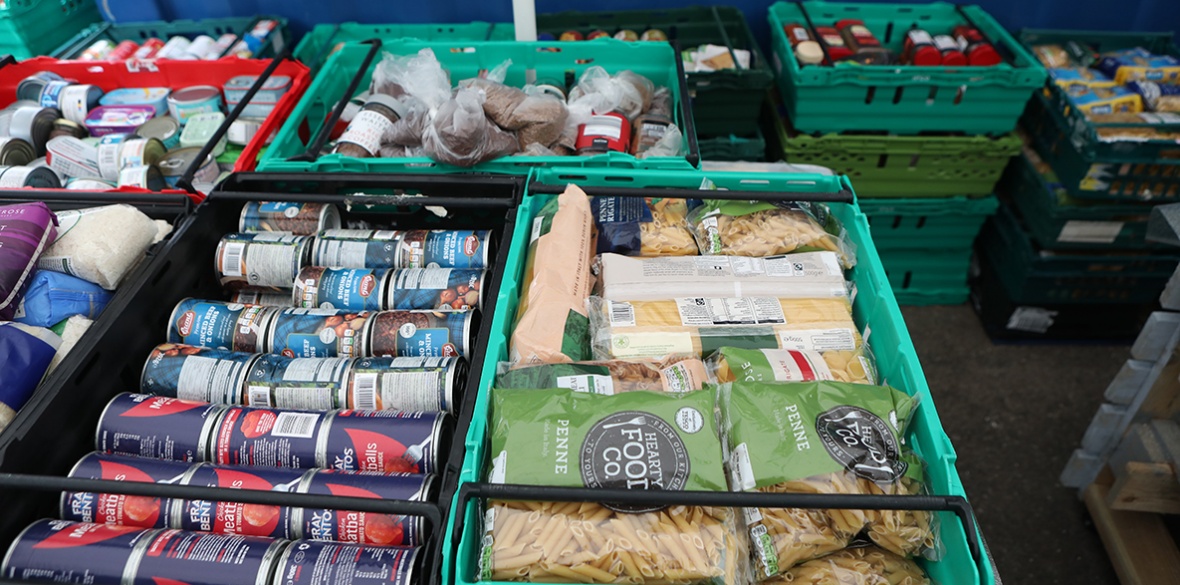This is the last article you can read this month
You can read more article this month
You can read more articles this month
Sorry your limit is up for this month
Reset on:
Please help support the Morning Star by subscribing here
AS Labour conference meets this week — following the festival of reaction which was the Tories’ annual gathering — consistently strong polling leads for the last year and the ongoing and multiple failures of the incumbent government show that the party is likely to win the next election.
As a report we have launched this week on “Labour’s in-tray” shows, the inheritance of that government will be the toughest of any incoming administration in living memory.
Across our public services, we can see the destructive impact of over a decade of ideologically driven austerity: underfunding, backlogs and chronic understaffing are the reality across the board and getting worse.
To take the example of the NHS. Throughout the 2010s the NHS suffered the longest funding squeeze in its history — with average annual increases of around 1 per cent, compared to the long-term average of closer to 4 per cent. And now, the NHS currently has the longest waiting lists on record — over 7.7 million — and around 130,000 staff vacancies.
In education, the outlook is also bleak. During the 2010s the schools budget was cut, the adult skills budget was slashed and funding was withdrawn from universities as tuition fees were trebled to over £9,000 per year.
In 2010-11, education spending was 5.4 per cent of the GDP. A decade later that had dropped to 4.4 per cent (2020-21), now meaning that increasing education spending just back to 2010 levels, as a percentage of the GDP, would cost an additional £21.3 billion per year.
Alongside this, cuts to social security and a growing housing crisis have contributed to the deepest and longest cost-of-living crisis on record and the effects on people have been devastating.
Weakened public services and a threadbare social security net are a toxic combination that illustrates a country at breaking point.
In one of the richest economies in the world, we see more people living in poverty, more families in temporary accommodation without a home to call their own, living standards falling, and life expectancy stalling.
Child poverty has increased significantly since 2010 and is likely to continue rising: currently, unemployment is increasing, and wages are lower in real terms than in 2008.
The next Labour government will not only face these social crises but also inherit a deep and structural economic crisis too. Since the banking crash, the Britain economy has been virtually stagnant. And rather than improving the situation, austerity has compounded those economic problems, with weak growth and low investment year after year.
While economists across the board say that effective and consistent levels of public investment are key to delivering consistent and stronger economic growth, analysis by the IPPR shows that since 1995 Britain’s public investment has never even reached the average level of other G7 countries or the OECD club of developed economies.
According to the Resolution Foundation, had Britain’s level of public investment been at the OECD average over the past two decades, it would have been £500 billion higher.
And as the climate emergency deepens, the Tories don’t just have their heads in the sand but are actively pursuing policies that will make the situation worse, putting the polluting profiteers before the interests of people and planet.
Even before the latest raft of roll-backs and U-turns on environmental policy, the Committee on Climate Change said in June 2023 that “policy development continues to be too slow” and “our confidence in Britain meeting its medium-term targets has decreased in the past year.”
As the Conservatives retreat on green investment, housebuilding targets and transport infrastructure, Labour must stand up to the fossil fuels lobby and strongly make the case for more job-creating, wealth-producing, emissions-reducing investment with an ambitious Green New Deal.
In this context of multiple crises, and over a decade of failed austerity, we need to be clear that bold policies will be necessary just to stop the rot. The level of investment needed to build a better country may seem daunting to some in Labour’s leadership, but to deny the deep scale of the crises we face would be a disastrous mistake.
The way forward is for our movement to have an urgent collective discussion on what progressive policies can transform the economy and society, based on a framework of ending austerity and investing in our future, and use the thirst for change in society to build a more equal, fairer and sustainable country.
The paper “What’s in the in-tray of an incoming Labour government?” sets out the scale of the challenge facing an incoming Labour government if it is to improve the situation facing our economy, our public services and our people and can be read at www.bit.ly/labourintrayreport.
John McDonnell is the Labour MP for Hayes and Harlington. Follow him on X @johnmcdonnellMP.










